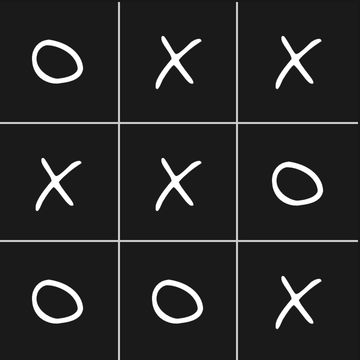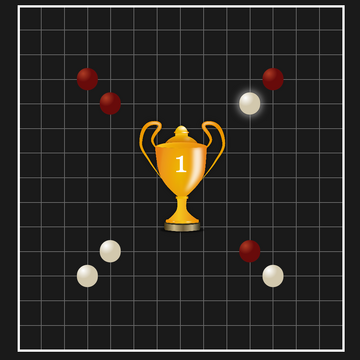Looking for a fun way to spend your break at work or school? Tired of repetitive activities and long, drawn-out games? We’ve got the perfect solution for you! Short games are a great way to avoid hours of playtime and complicated rules. With these games, you can have fun, give your brain a workout, and simply enjoy a moment of leisure. We’ve compiled a list of 15 of the best short games to play so you can find the perfect one for you. Let’s get started!
1. Tic-Tac-Toe

The game of Tic-Tac-Toe is a childhood classic that remains a favorite to this day due to its simplicity and engaging nature.
- Rules: Two players take turns placing an X or O on a 3x3 grid. The winner is the first to align three of their symbols in a row—horizontally, vertically, or diagonally.
- Objective: Outsmart your opponent and complete a line of three symbols before they do.
- Pros: Simple, versatile, can be played on paper or online.
- Cons: Often ends in a tie when both players are experienced.
2. Memory Match
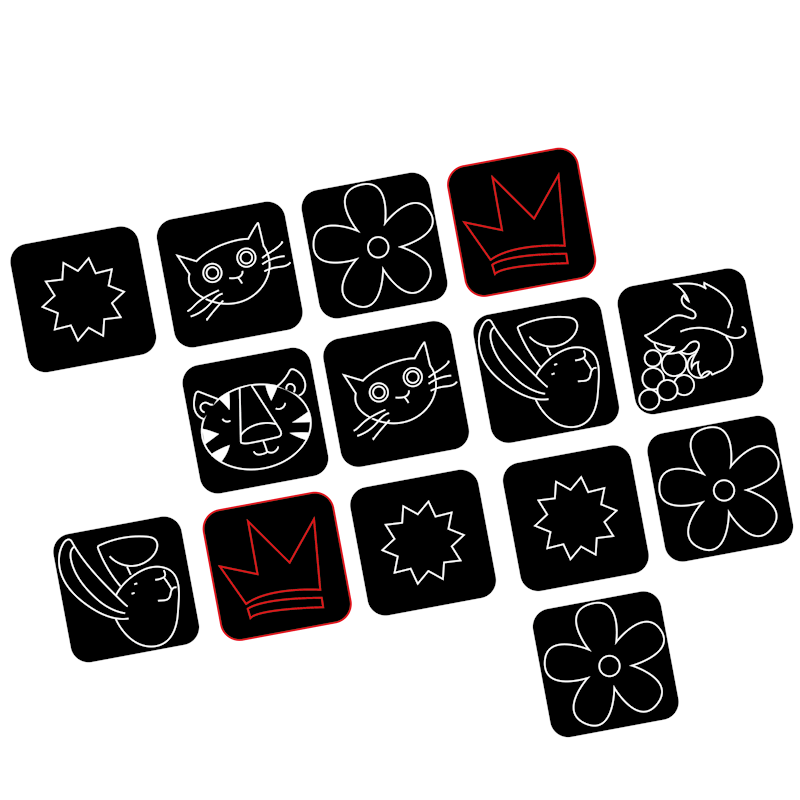
The tabletop game Memory Match, also known simply as Memory, is perfect for improving memory skills in players of all ages.
- Rules: Cards are placed face down on the table. Players take turns flipping two cards, trying to find a matching pair. Successfully matched pairs are kept by the player.
- Objective: Find more matching pairs than your opponents.
- Pros: Improves memory, suitable for all ages.
- Cons: Requires a prepared deck of cards.
3. Slide Puzzle
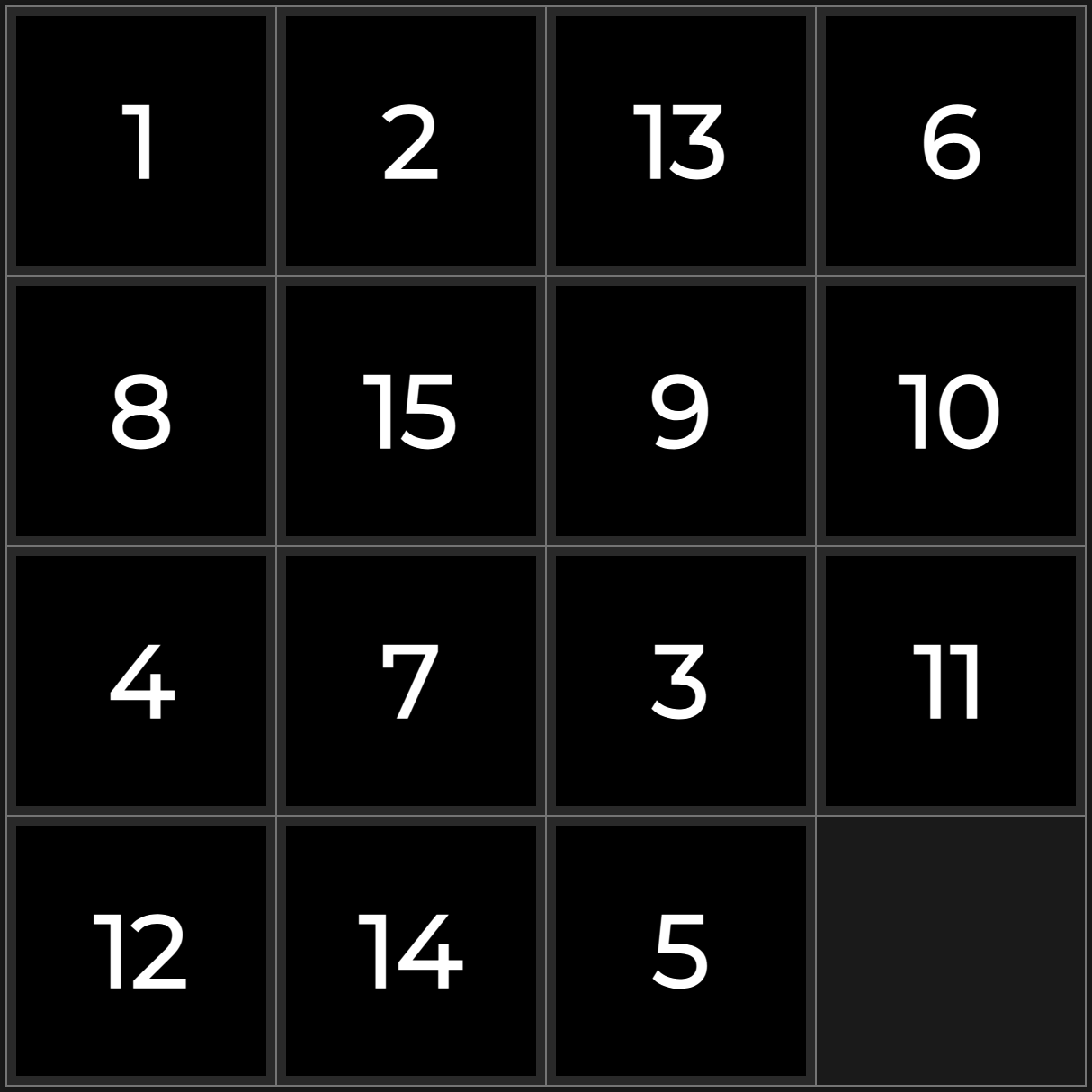
Slide Puzzle, also known as the 15 Puzzle, is a simple yet captivating game that sharpens the mind.
- Rules: Players move numbered tiles (from 1 to 15) across a 4x4 grid to arrange them in ascending order. One cell remains empty to allow movement.
- Objective: Organize the tiles in the correct order in the fewest moves and the shortest time possible.
- Pros: A logical challenge that enhances focus and strategic thinking.
- Cons: Can be tricky for beginners to master.
4. Reversi
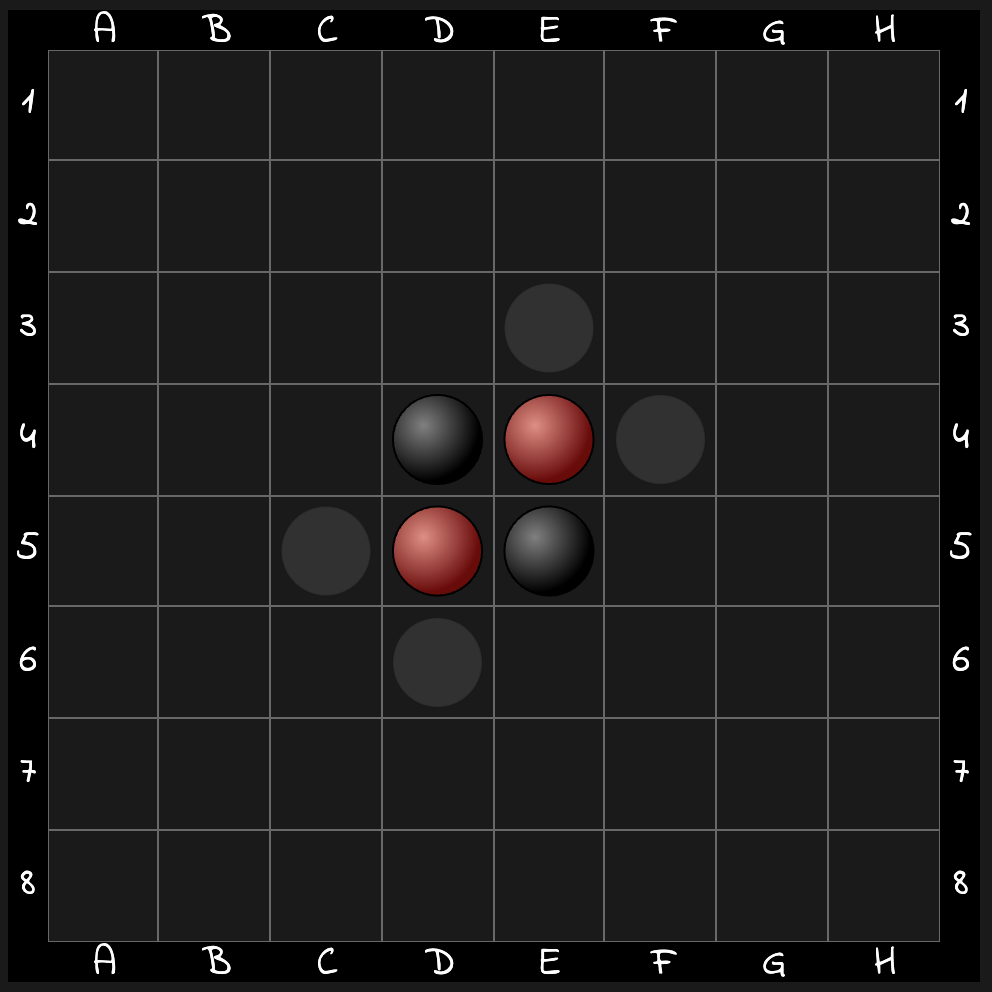
The game of Reversi stands out because each move can be pivotal and drastically change the outcome of the match.
- Rules: Played on an 8x8 board, players take turns placing double-sided discs. If an opponent's discs are flanked by your discs, their color is flipped to yours.
- Objective: Capture as many discs as possible by the end of the game.
- Pros: Offers deep strategy and is suitable for players of all ages.
- Cons: Requires time to learn advanced tactics and strategies.
5. Minesweeper

Minesweeper is a simple yet thrilling puzzle game that keeps you on the edge of your seat until the very end.
- Rules: Players uncover cells on the board, avoiding those with hidden mines. Numbers on the revealed cells indicate how many mines are nearby.
- Objective: Clear the board without triggering a mine.
- Pros: Simple and intuitive interface, improves logical thinking.
- Cons: Can be challenging for beginners on larger boards.
6. Gomoku

Gomoku is a game where logical thinking and precise planning determine the winner in each duel.
- Rules: Players take turns placing stones on the board. The goal is to create a row of five stones of your color horizontally, vertically, or diagonally.
- Objective: Outsmart your opponent and be the first to align five stones in a row.
- Pros: Deep strategy and logic, suitable for players of all skill levels.
- Cons: Requires practice and time to master advanced strategies.
7. Ultimate Tic-Tac-Toe
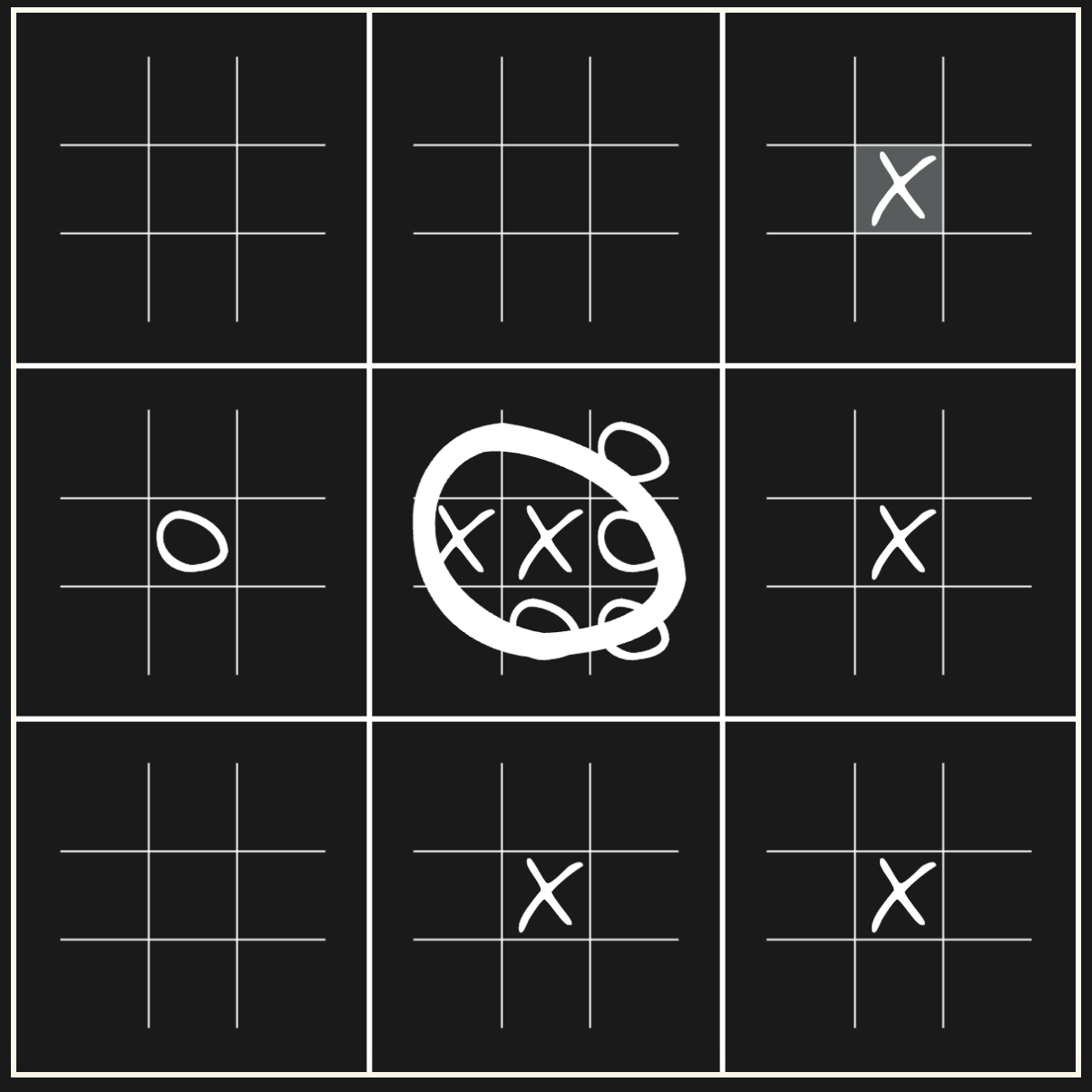
Ultimate Tic-Tac-Toe is an expanded and more challenging version of the classic game, eliminating the main issue of frequent ties.
- Rules: Played on a 9x9 grid divided into 9 smaller 3x3 grids. The move you make in one grid determines where your opponent can play next.
- Objective: Win three smaller grids following the classic Tic-Tac-Toe rules to dominate the main grid.
- Pros: Adds more strategy and depth compared to the classic version.
- Cons: Requires time to learn and understand the rules.
8. Block Puzzles
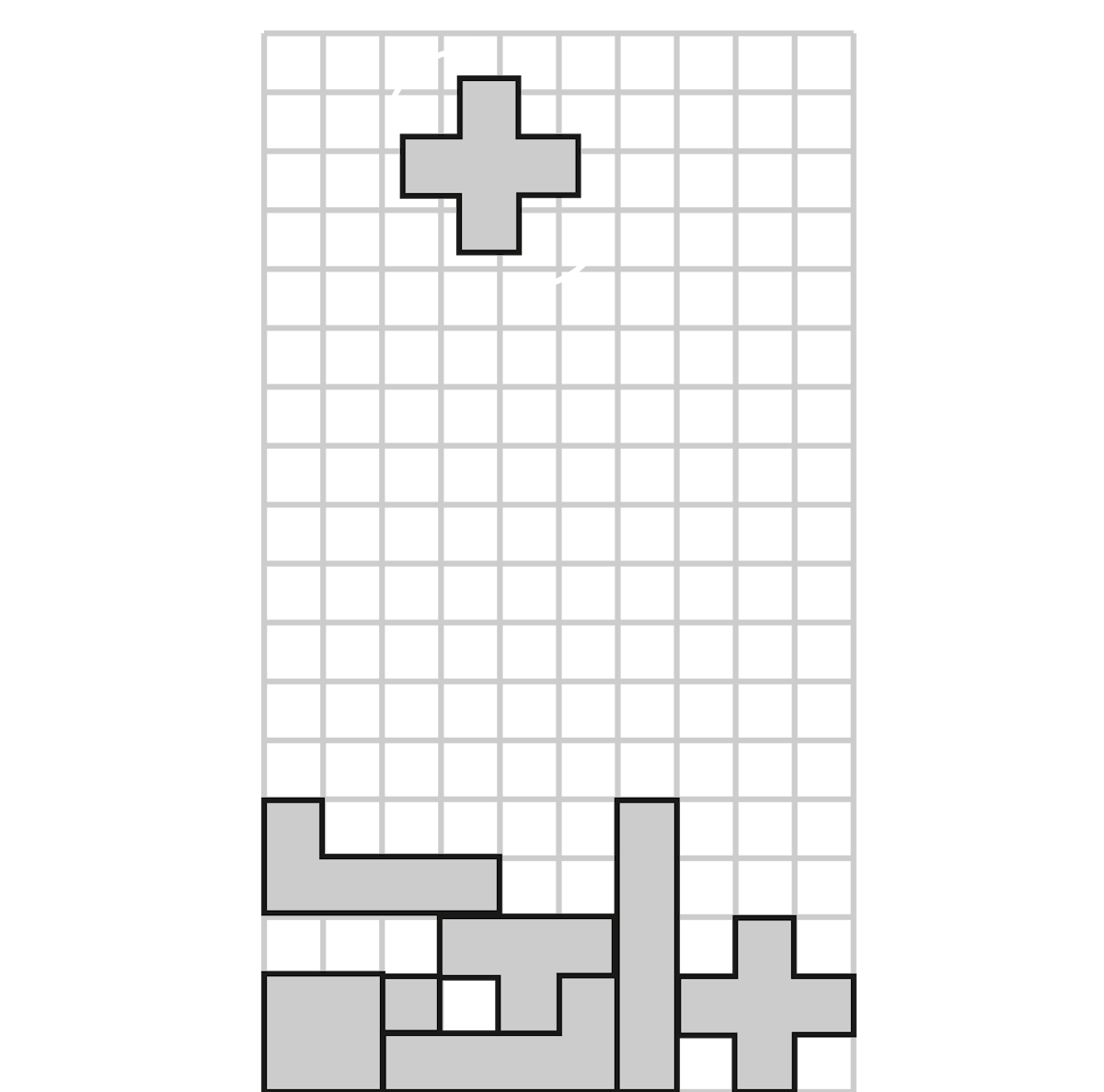
Block puzzles are logical games that require quick thinking and help develop spatial awareness.
- Rules: Players must place uniquely shaped blocks on a grid, ensuring they fit perfectly without leaving gaps.
- Objective: Complete the level by placing all the blocks correctly in the shortest time or with the fewest moves.
- Pros: Improves logical thinking, enhances spatial imagination, and is suitable for all ages.
- Cons: Can become challenging on higher levels for beginners.
9. 2048
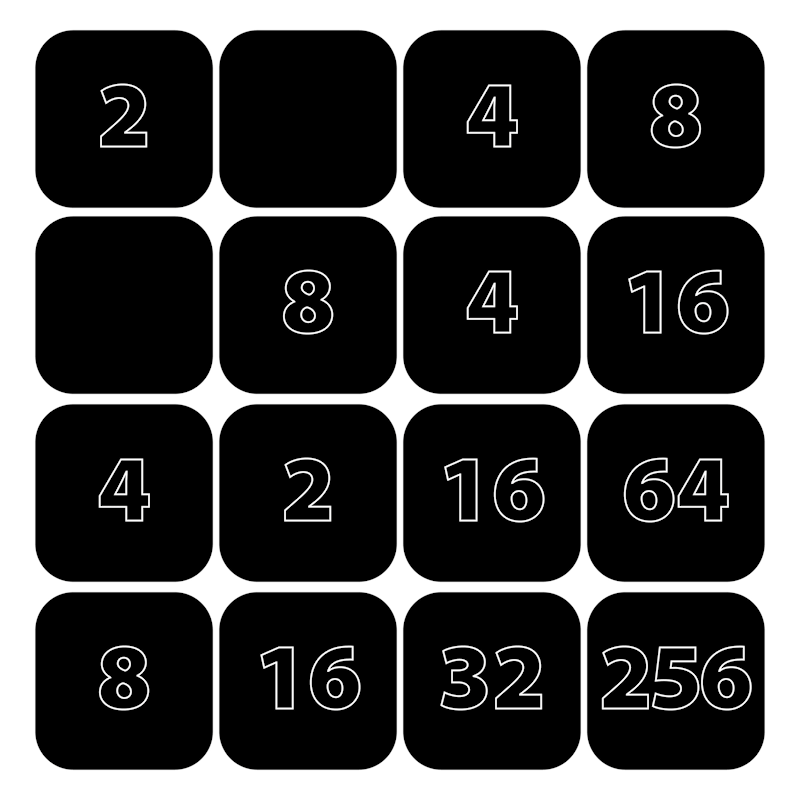
2048 is a popular digital puzzle that combines simple rules with addictive gameplay.
- Rules: Players slide numbered tiles on a grid, combining tiles with the same value. Each combination doubles the number on the tile.
- Objective: Reach the tile with the number 2048.
- Pros: Engaging process, simple rules, enhances strategic thinking.
- Cons: Gameplay may feel repetitive during extended sessions.
10. Rock, Paper, Scissors

Rock, Paper, Scissors is a classic game of luck and intuition that everyone knows from childhood.
- Rules: Players simultaneously show one of three symbols: rock, paper, or scissors. Rock beats scissors, scissors beat paper, and paper beats rock.
- Objective: Win more rounds than your opponent within a set number of turns.
- Pros: Extremely simple, no preparation required, perfect for any time and place.
- Cons: Heavily reliant on luck with minimal strategic depth.
11. Battleship

Battleship is a timeless classic that invites players to engage in strategic naval warfare, testing their wits and tactical planning in every move.
- Rules: Each player places their ships on a 10x10 grid at the start of the game, keeping their positions hidden from the opponent. Players take turns calling out coordinates to try and hit each other's ships.
- Objective: Destroy all of your opponent’s ships before they destroy yours.
- Pros: Simple rules, encourages strategic thinking, and is suitable for players of all ages.
- Cons: Can take time to set up the ships at the beginning of the game.
12. Uno
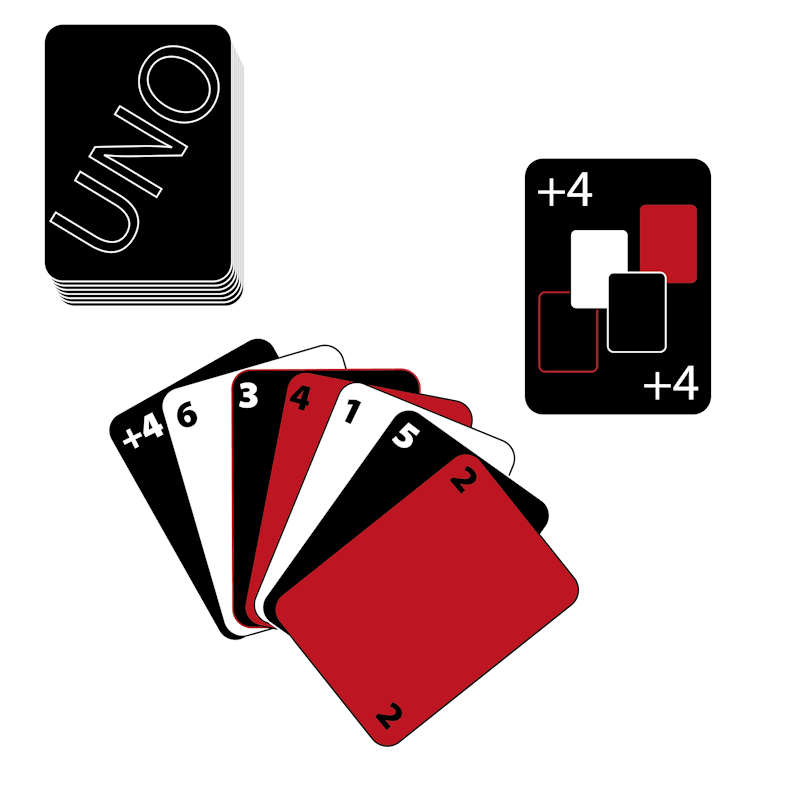
Uno is a vibrant and fast-paced card game where strategy meets a bit of luck.
- Rules: Players place cards by matching their colors or numbers. Special cards introduce unexpected effects, like skipping a turn or reversing the order.
- Objective: Be the first to get rid of all your cards.
- Pros: Fun dynamics, perfect for group play, and easy to learn.
- Cons: Relies heavily on luck at times.
13. Jenga

Jenga is a fun and exciting game that tests dexterity and precision. It’s perfect for family gatherings and friendly competitions.
- Rules: Players take turns removing wooden blocks from the tower and placing them on top, trying to keep the structure intact.
- Objective: Remove as many blocks as possible and build the tallest tower without causing it to fall.
- Pros: Enhances fine motor skills, focus, and tactical thinking.
- Cons: Requires a physical set of blocks for play.
14. Snake

Snake is a classic arcade game that’s perfect for short gaming sessions and quick fun.
- Rules: Players control a snake that moves around the field, eating objects and growing longer. Avoid crashing into the walls or the snake's own body.
- Objective: Score as many points as possible by increasing the length of the snake and filling up the field.
- Pros: Simple mechanics, easy to learn, great for quick breaks.
- Cons: High speeds on advanced levels can make it challenging for beginners.
15. Hangman

Hangman is a classic word game that sharpens logical thinking and builds vocabulary.
- Rules: One player thinks of a word, and the other tries to guess it by suggesting letters. Correct guesses reveal the letters in the word, while incorrect guesses add parts to a stick figure. The game ends when the word is guessed or the stick figure is completed.
- Objective: Guess the word before the stick figure is fully drawn.
- Pros: Simple rules, suitable for all ages, helps expand vocabulary.
- Cons: Requires basic language knowledge, may be challenging for non-native speakers.
Enjoy Your Gaming Experience!
Sometimes just a few minutes of gaming can energize your day and lift your mood. Pick any of the short games from our list, dive in, and feel the thrill of the game! After all, what could be better than a burst of positive emotions and fun, even if it’s just for 5 minutes?















